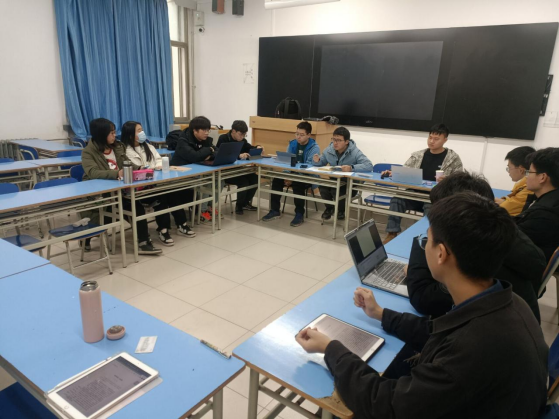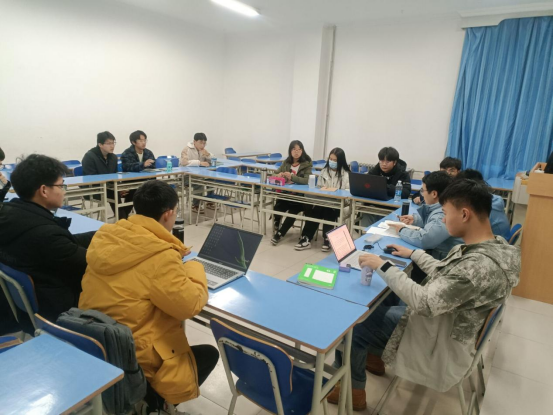On 11 December 2021 at 9:00am, the 16th "Common Sense" Reading Club of the School of Politics and International Relations was held in Tianshan Hall A105. The reading was organised by Mr Luo Yixuan and presented by Mr Zhao Yuanhao. There were 13 participants, from 2018, 2019, 2020 and 2021, majoring in Politics and Administration, International Politics and Political Science. The reading of the book was "The Three Waves of Modernity" by political philosopher Leo Strauss, which was translated by Mr. Ding Yun.

First of all, at the beginning of the essay, Strauss refers to a book that had a great influence on Western scholarship in the period towards the end of the First World War - The Fall of the West by Spengler. Spengler argues that the fall of modern Western culture is also the fall of modernity. Strauss, on the other hand, argued that the crisis of modernity was already extremely pronounced in his time.
Strauss argues that the crisis of modernity manifests itself or is present in the fact that modern Occidental man no longer knows what he wants, does not believe he can know what is good or bad, what is right or wrong, what is just, and what the best social order should be. In fact, Strauss uses the loss of purpose of classical political philosophy to address the crisis of modern political philosophy.
Next, in discussing the characteristics of modernity, Strauss begins by referring to a statement, quite popular in his time, that modernity is the secularisation of biblical faith. Strauss did not share this view and was critical. Strauss makes the point that modernity is understood as a radical change to pre-modern political philosophy, that modernity is a rupture between modern political philosophy and pre-modern thought, and that the great mind that made this rupture must have been aware of it. Thus Strauss begins to address the three waves of modernity in his sense of the term.
According to Strauss, the thinkers who caused the first rupture, or the first wave of modernity, were Machiavelli and Hobbes. This reading explores the Machiavellian part.

In this reading, Mr. Luo helped the students to understand Strauss's text by adding knowledge of physical theory, the history of ideas and using logical combing. He also conveyed his wish for everyone to enhance their reading and to bring independent thinking to the dialogue with the author of the book. By studying Strauss' essay on Machiavelli, Hobbes and Rousseau, the students were able to better sort out the logic of the history of Western political thought and gained a great deal.
